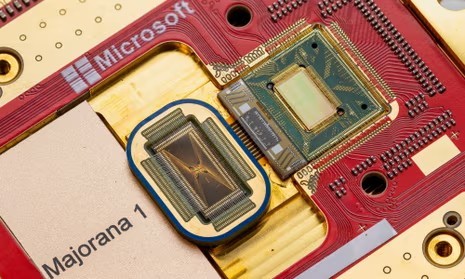Microsoft Claims Major Breakthrough in Quantum Computing Technology
Why in the News?
Microsoft announced a breakthrough in quantum computing, claiming to have developed a novel qubit chip that significantly enhances stability and scalability. If validated, this could accelerate quantum computer development from decades to just a few years.
About Microsoft’s Claim:
- Microsoft announced a breakthrough in quantum computing by developing a novel qubit chip.
- The company claims this innovation could significantly accelerate the development of practical quantum computers.
- The new qubits are reportedly more stable than existing ones, which could revolutionize quantum technology.
- If validated, this discovery would be a milestone in both quantum computing and physics.
- Some skepticism exists, as the process involves achieving a theoretical physical state never attained before.
Microsoft’s Impact on Quantum Advancements
- Microsoft’s new qubit design aims to improve stability, scalability, and error correction.
- The company envisions developing a million-qubit system within years, surpassing current 1,000-qubit systems.
- Experts believe this could drastically reduce errors and enhance computational power.
- While promising, Microsoft’s claims are under scrutiny as scientists attempt to verify the breakthrough.
- If proven, this could accelerate real-world quantum applications, pushing the field forward.
Understanding Quantum Computing:
- Quantum computers operate differently from traditional computers by leveraging quantum properties.
- They utilize superposition, allowing qubits to exist in multiple states (0 and 1) simultaneously.
- This enables parallel processing, unlike classical computers that process data sequentially.
- Quantum systems are highly sensitive; external disturbances like temperature changes can destabilize qubits.
- Another challenge is ensuring the accuracy of results, as quantum states produce multiple possible outcomes.
- Error correction requires additional qubits, making stability a crucial factor in quantum computing.




